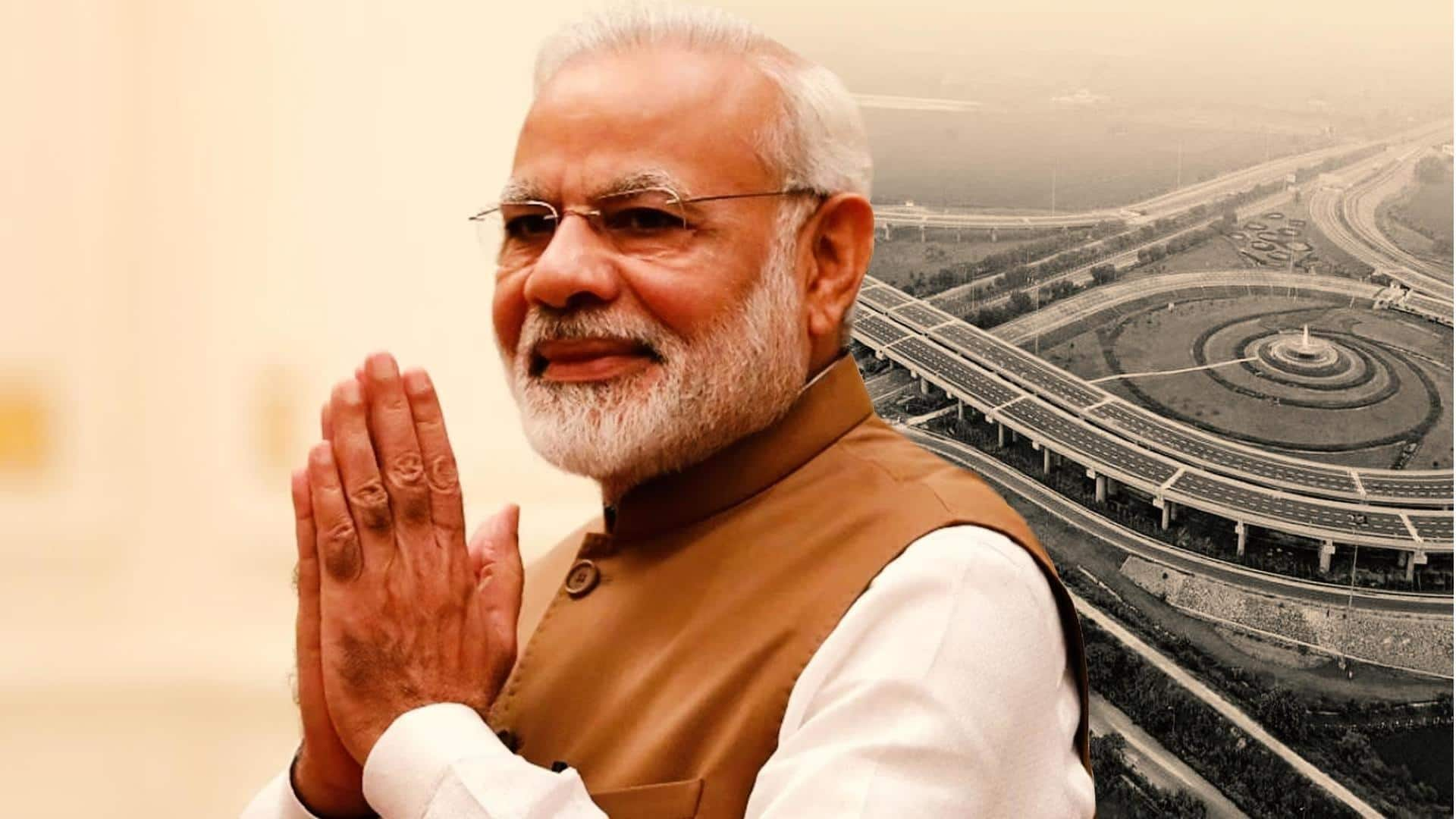
PM Modi to inaugurate Delhi-Mumbai Expressway second stretch today
What's the story
Prime Minister Narendra Modi will inaugurate the second stretch of the Delhi-Mumbai Expressway up to Gujarat on Monday, reducing the road travel time between the national capital and Vadodara to 10 hours. Earlier, the distance by road between these two cities was more than 1,000km. However, with the inauguration of this new expressway stretch, the distance via road will reportedly come down to just 845km.
Details
New expressway shortens distance by over 150km
Constructed at a whopping cost of approximately Rs. 12,000 crore, the Delhi-Vadodara section of the Delhi-Mumbai Expressway traverses Haryana (79km) and the poll-bound states of Madhya Pradesh (244km) and Rajasthan (373km). It should be noted that the prime minister earlier inaugurated the 246-kilometer-long Sohna-Dausa-Lalsot section of the Delhi-Mumbai Expressway in February. It is already functional.
What Next?
MoRTH official reveals key details on Delhi-Mumbai Expressway second stretch
Speaking to News18, a Ministry of Road Transport and Highways (MoRTH) official stated, "It is an access-controlled expressway, and cars can run at a speed of 120km/h. This eight-lane e-way will allow a smooth flow of traffic." "It is going to ease the journey between the two cities while offering better connectivity to Jaipur, Kota, Chittorgarh, Indore, Ujjain, Bhopal, and Ahmedabad," added the official.
More details
Details on other Vadodara-Delhi routes
The Delhi-Vadodara section of the expressway is expected to reduce travel time significantly. For reference, the Mumbai Central Tejas Rajdhani, currently the fastest train between Vadodara and Delhi, takes approximately 10 hours and 45 minutes. Moreover, there are two direct road routes to reach Delhi from Vadodara: one via Bhilwara, Udaipur, and Jaipur, and the other through Lalsot, Kota, and Laxmangarh. It reportedly takes 18 to 20 hours to travel, depending on the route.
Insights
Delhi-Mumbai Expressway: Features and benefits
Notably, the Delhi-Mumbai Expressway connects six states in India: Delhi, Haryana, Rajasthan, Madhya Pradesh, Maharashtra, and Gujarat. Once fully functional, the eight-lane expressway will be the country's longest expressway (1,386 kilometers). There are over 40 main interchanges on the expressway, with a three-meter wide corridor designated to utility lines, including solar power generation, optical fiber cables, pipelines, and an advanced automated traffic management system.